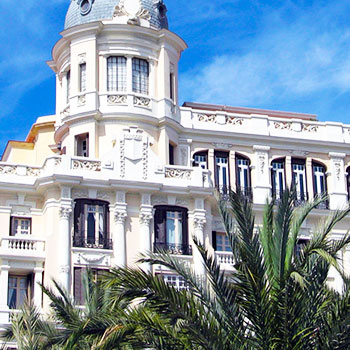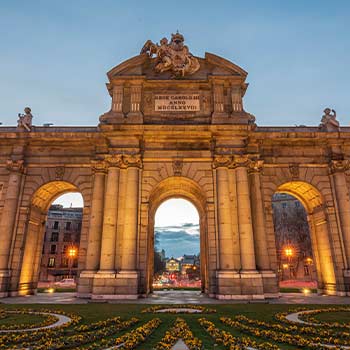Graphic Analysis & Ideation II
Business Studies Program
Alicante, Spain
Dates: 9/5/24 - 12/21/24

Graphic Analysis & Ideation II
OVERVIEW
CEA CAPA Partner Institution: University of Alicante
Location: Alicante, Spain
Primary Subject Area: Architecture
Instruction in: English
Transcript Source: Partner Institution
Course Details: Level 200
Recommended Semester Credits: 3
Contact Hours: 60
DESCRIPTION
This course explores the analytical and ideation qualities that characterize much of the architects? graphic activity. It also raises space colonization strategies using models.
Ideation or inception drawings are initially introduced through emulation, drawing realities constructed or planned by others and, later, used in the ideation process of an architectural object. Abstractions are produced from material realities or conceptual ones, mostly architectural pretexts.
Ideation or inception drawings are used by architects as an extension of their graphic thought aided by graphic schemes and projections used in conjunction. They cover all types: conical and axonometric perspectives alongside orthographic canonical projections such as floor plans, sections, or elevations. The aim is, first, learning to select the views (diagrams and projections) necessary for the proper development of the ideation process and, secondly, trying to use the most appropriate graphic resources at this stage of the design process. The synthetic condition that characterizes architectural drawing is sought in contrast with the descriptive possibilities characteristic of painting. However, this synthesis must not lead to impoverishment of the message, but, on the contrary, efficiency must be pursued in the drawings in order to obtain the best information using the most appropriate media (time, instruments, etc.).
Abstractions, o, are directed to the core of architecture itself: they try to analyse the formal order and the geometric structure characterizing a given architecture, not the visual appearance we have of it. Seeking, therefore, the very essence of being against the appearance of the contingent. Abstractions derived from physical realities as well as from abstract concepts will be proposed to students as a way to achieve a thorough analysis of the essential towards the introduction of an ideation practice.
Finally, since the work of architects is confined to the boundaries of space, compositional strategies in space will also be explored through the use of models, always in the context of ideation in space through composition systems.
Ideation or inception drawings are initially introduced through emulation, drawing realities constructed or planned by others and, later, used in the ideation process of an architectural object. Abstractions are produced from material realities or conceptual ones, mostly architectural pretexts.
Ideation or inception drawings are used by architects as an extension of their graphic thought aided by graphic schemes and projections used in conjunction. They cover all types: conical and axonometric perspectives alongside orthographic canonical projections such as floor plans, sections, or elevations. The aim is, first, learning to select the views (diagrams and projections) necessary for the proper development of the ideation process and, secondly, trying to use the most appropriate graphic resources at this stage of the design process. The synthetic condition that characterizes architectural drawing is sought in contrast with the descriptive possibilities characteristic of painting. However, this synthesis must not lead to impoverishment of the message, but, on the contrary, efficiency must be pursued in the drawings in order to obtain the best information using the most appropriate media (time, instruments, etc.).
Abstractions, o, are directed to the core of architecture itself: they try to analyse the formal order and the geometric structure characterizing a given architecture, not the visual appearance we have of it. Seeking, therefore, the very essence of being against the appearance of the contingent. Abstractions derived from physical realities as well as from abstract concepts will be proposed to students as a way to achieve a thorough analysis of the essential towards the introduction of an ideation practice.
Finally, since the work of architects is confined to the boundaries of space, compositional strategies in space will also be explored through the use of models, always in the context of ideation in space through composition systems.






